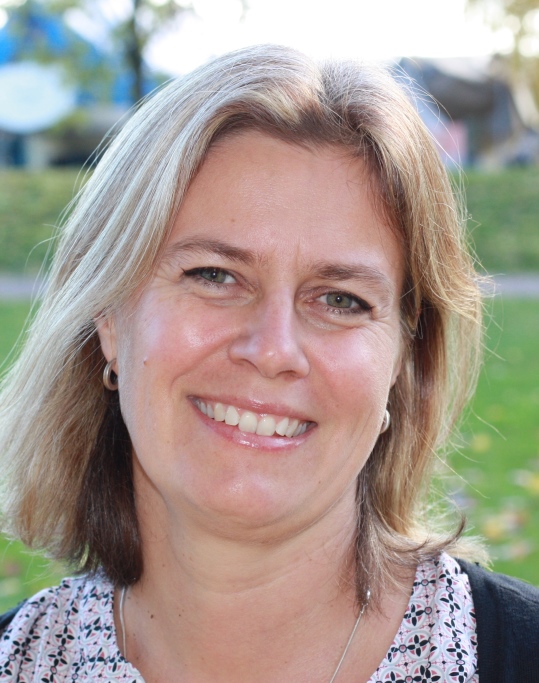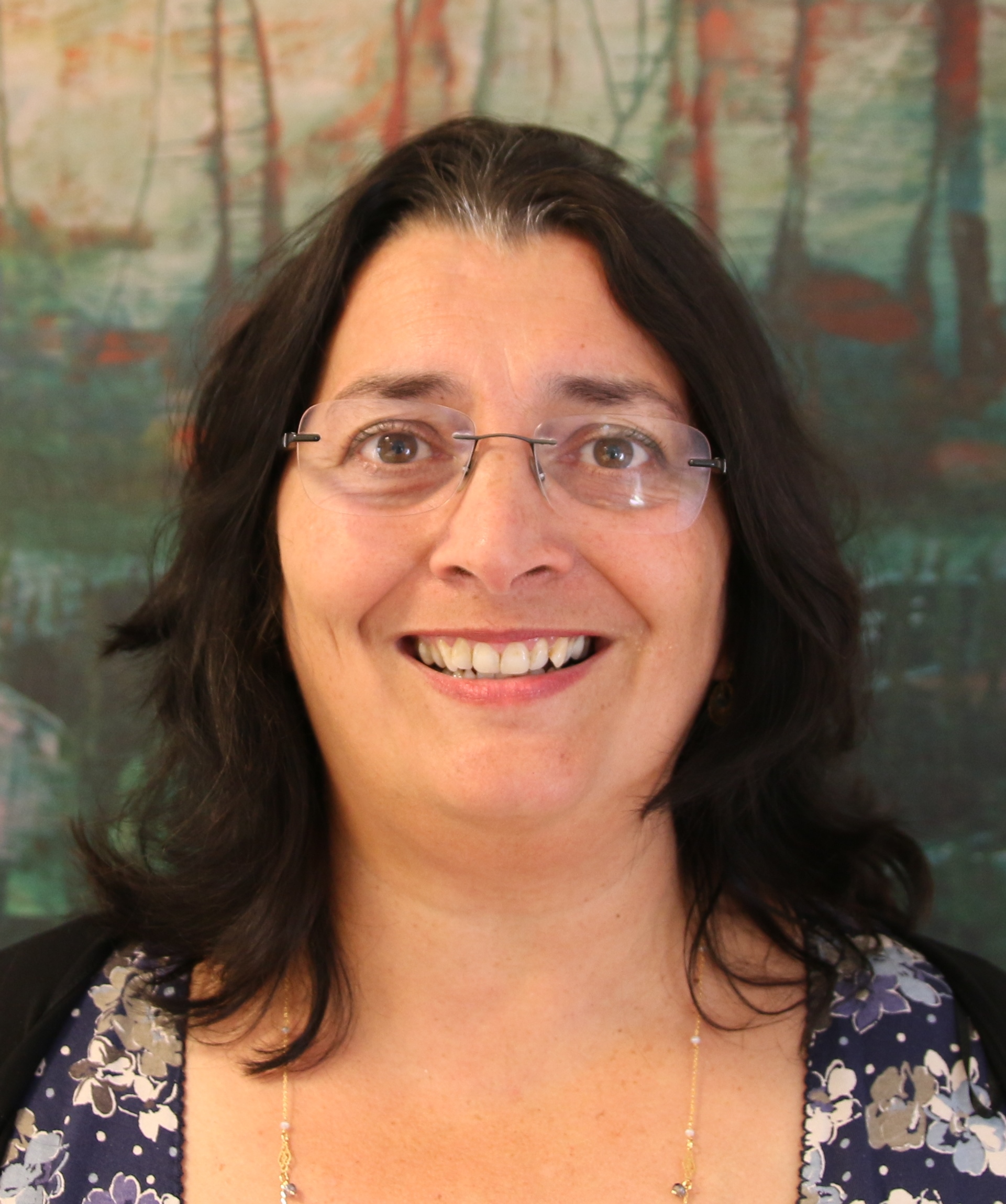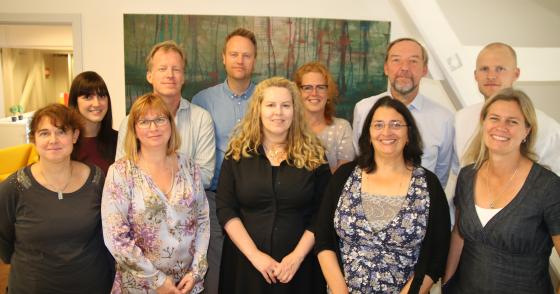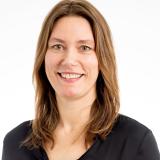The KIF Committee: Watchdog and help centre
All research institutions that work with gender balance and diversity should be familiar with the KIF Committee.
“One of the most important aspects of KIF’s work is to help facilitate change in institutions that want to improve diversity and gender balance at their own institutions,” says Ella Ghosh.
“We’re happy to talk with or establish more binding cooperation with the people who work on this issue,” says Heidi Holt Zachariassen.
Together these two women comprise the secretariat for the KIF Committee. Both are employed by the Norwegian Association of Higher Education Institutions (UHR).
KIF stands for the Committee for Gender Balance and Diversity in Research. The committee of 11 permanent members from the research sector – from students to researchers and managers – work on commission from the Ministry of Education and Research. Along with the secretariat, the committee is involved in a number of different processes, from providing input on government policy to calling for better statistics. They always work deliberately vis-á-vis the individual research institutions, as previous committees have done as well.

“When the KIF Committee – the fourth in a row now – was appointed, the members decided immediately to continue to prioritize institutional visits. The committee seeks to be a change agent, not only by providing input and meeting with decision-makers such as the Research Council of Norway and the Ministry of Education and Research, but also together with the universities, university colleges and research institutes,” explains Zachariassen.
The task of the secretariat is simply to carry out the work that the KIF Committee decides on.
“While the committee takes the fundamental decisions at the meetings about four times a year, we in the secretariat have the most active role between the committee meetings. We write drafts of policy input on behalf of the committee, take part in EU cooperation, and plan and implement institutional visits, seminars and conferences,” says Zachariassen.
“We do this in slightly different ways. Since the secretariat is located at UHR, we sometimes introduce the KIF Committee’s views into UHR’s processes with councils, work groups or policy input – such as now with the structural reform in the higher education sector,” explains Ghosh.
Right before summer, the KIF Committee organized the conference “Structural reform in the higher education sector: Promising for gender equality?” together with the Norwegian University of Science and Technology (NTNU). The main reason that the committee gets involved in the structural reform is the inherent potential for change in reform.
In the autumn the committee will also publish guidelines for the research sector in which the committee will show how and why it is crucial to keep the goals for gender balance and diversity in mind – especially during restructuring processes.
“Use us!”
In addition to the visits that the KIF Committee makes to selected institutions, one or both of the women in the secretariat take part in meetings or seminars with others seeking guidance or advice. Researchers who work with relevant projects are among those who contact the secretariat. The same is true for gender equality advisers or others in personnel and administrative departments with responsibility for gender equality efforts in their own organizations.
“It can get lonely being a gender equality adviser,” says Ghosh, who served for three years as the gender equality adviser at the University of Oslo.
Ghosh explains that at many institutions the responsibility is assigned as a part-time task in the personnel department, and gender equality advisers are often alone on the job. Many have good support from their own managers, but may face resistance when they bring up gender equality cases. Others have good opportunities to influence strategies and measures.
“We can have a dialogue or come to meetings, be a support player and give input on preparing action plans or measures. Use us and the tools we have at our disposal: the KIF Committee’s members, our website and the two of us in the secretariat. Our task is to connect the available knowledge about gender balance and ethnic diversity in academia with specific instruments and measures for the research sector,” she continues.
“Quite simply, ours is a translation job. We translate knowledge into practice,” adds Zachariassen.
Zachariassen has written a book on mainstreaming gender perspectives in practice.
About the KIF Committee and kifinfo
Cooperation on many fronts
The kifinfo.no website is one of the KIF Committee's tools. The website is administered by Kilden kjønnsforskning.no, and publishes resource pamphlets and handbooks for which the committee is responsible. In addition, the committee contributes to research projects on diversity and gender equality.

Earlier this year, the Work Research Institute (AFI) and the Nordic Institute for Studies in Innovation, Research and Education (NIFU) presented a report they prepared on commission from the KIF Committee: “It’s not an advantage to be a foreigner” – Career pathways and barriers for immigrants in Norwegian academia”.
The committee will soon present its recommendations for what should be followed up and which measures should be implemented to increase ethnic diversity – all based on findings in the report.
Zachariassen says the committee will be extremely busy throughout the autumn. They will discuss gender balance and diversity in meetings with UHR, with research institutions in Bergen and with the Minister of Education and Research.
“The two of us in the secretariat will also give a presentation and hold a poster session about the KIF Committee at a European gender equality conference in September. It’s important that we share our experience from the KIF Committee’s work with others outside of Norway,” adds Ghosh.
“The secretariat’s job is not to delve into research. We don’t have time for that. Several of the committee members are researchers, whereas we work at the interface between research and practice,” explains Ghosh.
See the list of the KIF Committee’s members
“The KIF Committee makes a difference!”
The versatility of the committee’s work is perhaps its most important strength. With the help of the chair, the secretariat and the members, the committee can work with gender equality in many different ways and be more than a watchdog.
“We must show how and why diversity and gender equality are important for the research sector, that gender balance is crucial for both the relevance and quality of research,” says Zachariassen.
“What is the most important result of the KIF Committee’s work?”
“Our most important task is to always work to place gender and diversity on the agenda, where it otherwise would be forgotten. For example, the structural reform is seemingly an entirely neutral process, but it turns out that gender equality issues often get the lowest priority,” says Ghosh.
“We will also develop a knowledge base for diversity in academia with a report and group work, and over time – measures. We work directly with the institutions and academic councils,” says Zachariassen.
The most recent result of these efforts is that NTNU, Norway’s largest university, will now include competency in gender equality issues as a formal requirement in all job announcements for management-level positions.
The KIF Committee has also been a driving force behind the decision of the Ministry of Education and Research to ensure there are better statistics on ethnic minorities in academia through a report and NIFU’s statistics bank.
“But we have gender equality in Norway, don’t we?”
“This is actually the heart of the matter. Norway has gained recognition for gender equality, but with regard to academia, it is undeserved. We see this clearly in She Figures, for example, the European gender equality statistics. Here Norway is mediocre at best,” says Zachariassen.
Recommendations for the minister
Ghosh and Zachariassen have six specific recommendations for the Minister of Education and Research:
- Gender and diversity issues must be included in the curriculum of all leadership trainings in the sector.
- Gender equality must be higher up on the agenda in the structural reform so that we do not lose a unique opportunity to improve gender balance and diversity.
- Academia must reflect society at large. Society is undergoing change, and academia must follow suit. It is critical in both power positions and research itself that research institutions strive to reflect the ethnic composition of modern Norway.
- Clearer guidelines must be given for how and why the Ministry of Education and Research wants the sector to work with diversity. Resources must be set aside for empirical research on efforts to promote diversity in academia.
- For many years, the institutions have tried out gender equality measures, and some have got new opportunities via the Research Council’s BALANSE programme. In order to work in a targeted, knowledge-based manner, a comprehensive evaluation is needed of the impact of gender equality measures.
- The Research Council has a clear policy on gender balance. If the Ministry of Education and Research believes there should be similar requirements for ethnic diversity, the Research Council should be given a clearer signal about this.
Change agents
“Why can’t the Ministry of Education and Research do the job itself?”
“We are located at UHR and have close contact with the institutions – something that is very important for us. In addition, we work to influence policy in the area, which we could not do if we were a part of the Ministry of Education and Research. We view the structural reform from a KIF perspective, for example, and this enables us to study the ramifications of the reform for our mandate. ”
The KIF Committee has members with sound research experience, knowledge and ties to the sector – and is an autonomous entity. This is an advantage in our dialogue with the institutions.
“By the same token, we have close contact with the Ministry of Education and Research in concrete cases, the KIF Committee provides input on government white papers and takes part in meetings.”
Translated by Connie Stultz.
The committee has 11 members, five deputies, two observers – and two in the secretariat. The members work in or with the research sector. They are students, researchers and managers. KIF disseminates news, research and tools via the website kifinfo.no.
Ella Ghosh is a political scientist with experience from the gender and discrimination field, both within and outside the research sector, in the ministry, the Norwegian Association of Researchers and NGOs.
Heidi Holt Zachariassen is a sociologist with extensive international expertise in integrating gender perspective in development aid efforts and training aid organizations in gender and development issues, about which she has written a book and scholarly articles. Zachariassen has also worked with intercultural communication vis-á-vis trade and industry and the NGO sector.
The KIF Committee’s tasks:
- Work nationally and internationally with gender balance and ethnic diversity in research;
- Cooperate with university colleges, universities and research institutes;
- Engage in dialogue with the Ministry of Education and Research, the Research Council and other relevant stakeholders in the sector;
- Participate in hearings;
- Organize seminars and conferences;
- Help to enhance the knowledge base;
- Be a driving force for positive change in the area;
- Promote better gender balance in Horizon 2020;
- Disseminate news, research and tools to the sector through kifino.no.
See:
Contact information:

